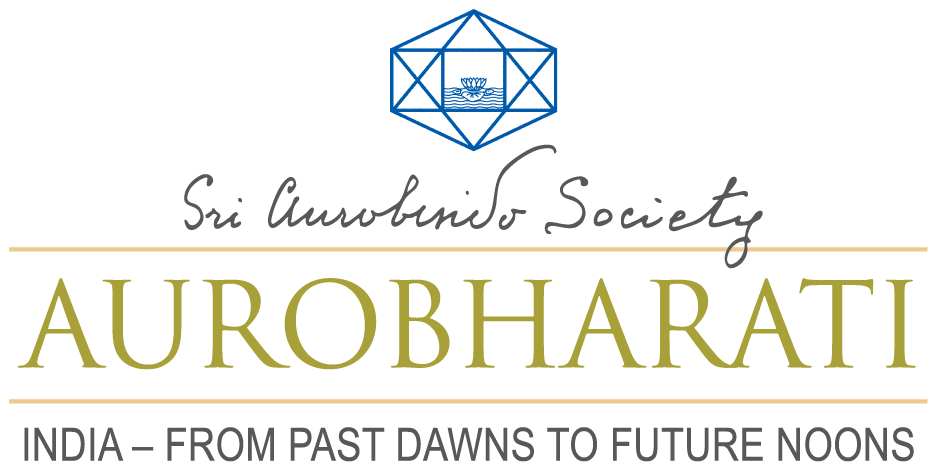Research Methodology Course for Research Scholars in Social Sciences
Location: Society House
Institute: AuroBharati
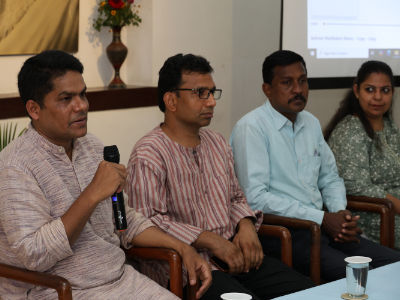 AuroBharati, Sri Aurobindo Society, Union Territory of Puducherry, hosted an engaging Interactive session focused on a Research Methodology Course for Social Sciences scholars. This initiative was a joint effort involving AuroBharati, SAS, and the Centre for Study of Social Inclusion from Pondicherry University, in partnership with the Institute for Educational and Developmental Studies (IEDS) based in Noida, and was supported by the Indian Council of Social Science Research in New Delhi.
AuroBharati, Sri Aurobindo Society, Union Territory of Puducherry, hosted an engaging Interactive session focused on a Research Methodology Course for Social Sciences scholars. This initiative was a joint effort involving AuroBharati, SAS, and the Centre for Study of Social Inclusion from Pondicherry University, in partnership with the Institute for Educational and Developmental Studies (IEDS) based in Noida, and was supported by the Indian Council of Social Science Research in New Delhi.
Dr. Kishor Kumar Tripathy, Member Secretary of AuroBharati, warmly welcomed faculty and students from various universities attending the session. The event was facilitated by Dr. Prabakaran. G, an Assistant Professor at the Centre for Study of Social Inclusion, along with Dr. Anish Gupta from the University of Delhi and Mrs. Charu Tripathy, Associate Director at AuroBharati, who coordinated the interactive discussions. 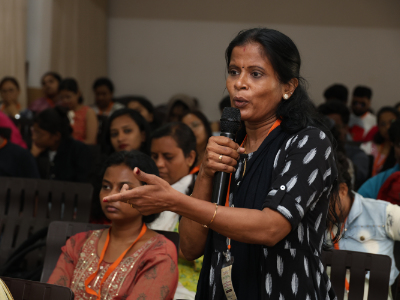 Throughout the session, research scholars posed numerous questions, which were thoughtfully addressed by the panel. As part of this comprehensive program, participants had the opportunity to visit the Sri Aurobindo Ashram, the Sri Aurobindo Society, and the Auroville Foundation.
Throughout the session, research scholars posed numerous questions, which were thoughtfully addressed by the panel. As part of this comprehensive program, participants had the opportunity to visit the Sri Aurobindo Ashram, the Sri Aurobindo Society, and the Auroville Foundation.
In response to participants’ questions, Dr. Tripathy emphasized that the teachings of Sri Aurobindo and The Mother regarding Integral Yoga and spirituality provide deep insights into creativity, human growth, self-expression, and life’s ultimate purpose. Dr. Tripathy further emphasized that this integration process involves awakening and harmonizing these different aspects of the self, resulting in a fuller and more genuine expression of one’s innate potential. Self-perfection plays a crucial role in this 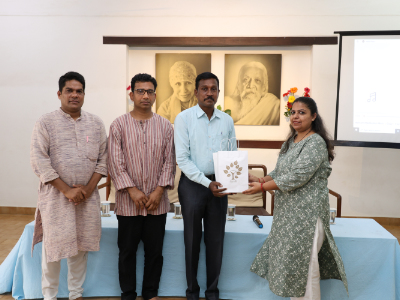 transformative journey, as Sri Aurobindo regarded it as a key element of the Divine’s manifestation in the world. He believed that the creative drive is not just a human trait but a universal principle that fuels the evolution of consciousness.
transformative journey, as Sri Aurobindo regarded it as a key element of the Divine’s manifestation in the world. He believed that the creative drive is not just a human trait but a universal principle that fuels the evolution of consciousness.
Discussing about the socio-cultural challenges, Dr Tripathy said that by attaining oneself to this higher creative energy, individuals can serve as conduits for new possibilities and fulfil the Divine’s intended purpose on Earth. This alignment necessitates profound inner work of self-exploration and purification, along with openness to the guiding force of the Divine Shakti, or the Mother’s transformative energy. Thus, Integral Yoga can act as a powerful catalyst for both personal and societal change, promoting unity, compassion, and collaboration among individuals and communities. Additionally, the principles of Integral Yoga are applicable not only to spiritual growth but also to various human endeavours, such as research, innovation, and sustainability.
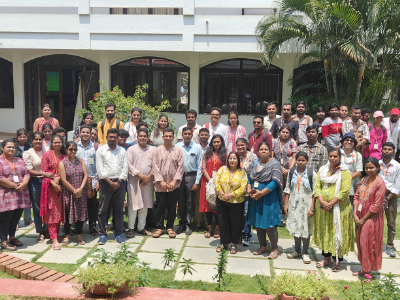
The panel also responded significant queries with an emphasis by adopting a more comprehensive and integrative approach to these areas, we can create solutions that resonate with the fundamental truths of existence and effectively address the intricate issues humanity faces. This journey calls for a commitment to authentic introspection, meaningful dialogue, and innovative experimentation, leveraging the insights of spiritual traditions while remaining receptive to fresh ideas and opportunities. By facing this challenge with genuine intent, determination, and an open heart, we can play a role in the collective awakening of human consciousness and contribute to the development of a more enlightened and sustainable future.
